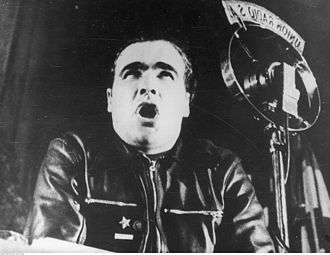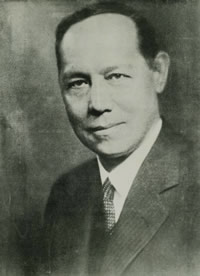Discover Your Roots
SIGN UPDiscover Your Roots
SIGN UPEnrique is a male name of Spanish origin, meaning "Home Ruler." It is the Spanish variant of the Germanic name Heinrich and has equivalents in other languages, such as Henry, Enric, Enrico, and Henrik. Common nicknames for Enrique include Kiki, Kiko, Kike, Rick, Ricky, and Quique. The name is also used as a surname, with variant forms like Enriquez. Notable individuals with the name include Enrique Iglesias, a renowned Spanish singer and actor, Enrique Peña Nieto, the 57th President of Mexico, and Enrique Granados, a celebrated Spanish pianist and composer. With its strong and regal meaning, Enrique is a name that exudes leadership and authority.

Enrique Iglesias, born on May 8, 1975, is a prominent Spanish singer and songwriter who began his recording career in the mid-1990s. He initially gained fame in the Spanish-language market with hit albums like Enrique Iglesias, Vivir, and Cosas del Amor. He later successfully crossed over into the English-language market, signing a multi-album deal with Universal Music Group and releasing popular albums such as Enrique, Escape, 7, and Insomniac. With estimated sales of over 70 million records worldwide, Iglesias is one of the best-selling Latin music artists. He has achieved numerous accolades, including five Billboard Hot 100 top five singles and a record-breaking number of number-one songs on the Billboard Hot Latin Songs chart. Iglesias, often referred to as the King of Latin Pop, has also earned 14 number-one positions on Billboard's Dance charts, surpassing all other male artists. His exceptional talent and immense popularity have solidified his position as a top male dance club artist. Born in Madrid, Spain, to singing legend Julio Iglesias and Filipina socialite Isabel Preysler, Enrique Iglesias overcame personal challenges, such as a rare congenital condition known as situs inversus, to emerge as a global music sensation. His enduring legacy in the music industry continues to inspire and entertain audiences worldwide.

Enrique Castillo, born on December 10, 1949, is a multi-talented American actor, writer, director, and producer. He is best known for his role as Montana in the feature film "Blood In Blood Out," which was directed by Taylor Hackford. Castillo co-wrote the plays "Stone Wedding" and "August 29" for The Latino Theater Company, of which he is a founding member. Additionally, he wrote and directed the documentary "The History of The Latino Theater Company" and co-produced the company's annual comedy fundraiser "Noche de Risa y Susto."In 1997, Castillo founded Four Brown Hats Entertainment (FBHE), a film and theater production company. With FBHE, he adapted and directed "The Last Angry Brown Hat" and wrote and directed "Veteranos: A Legacy of Valor," a theater piece honoring the military contributions by Latinos in America's defense.His completed feature film scripts include "Yo Solo," "The Cobra," "Valley of the Dead," "Deerdancer," and "The Last Angry Brown Hat." Throughout his career, Castillo has made significant contributions to both the stage and screen, showcasing his diverse talents and unwavering dedication to the arts.

Enrique Líster Forján, born on April 21, 1907, in Ameneiro, A Coruña, was a prominent Spanish communist politician and military officer. Líster's involvement with the revolutionary movement began when he joined the Communist Party of Spain (PCE) after returning from Cuba in 1925. He played a crucial role in the Spanish Civil War, rising to the rank of major general in the Red Army of the USSR during World War II. Líster's military prowess and leadership as the commander of the "11th Division" earned him recognition as a war hero for the Republican cause. Following the Civil War, he sought refuge in Moscow and later fought in World War II. Líster's significant contributions extended to his involvement in the Yugoslav People's Army and the Polish People's Army. In 1977, he returned to Spain and rejoined the PCE during the country's transition to democracy. Líster, who authored several books reflecting his personal experiences, passed away in 1994 in Madrid. His legacy as a dedicated communist leader and military strategist continues to be remembered.Keywords: Enrique Líster Forján, Spanish communist politician, military officer, Spanish Civil War, Red Army, PCE, war hero, Republican cause, Yugoslavia, Poland, transition to democracy, author, legacy

Enrique Alfredo Olaya Herrera (12 November 1880 – 18 February 1937) was a prominent Colombian journalist and politician who served as President of Colombia from 1930 to 1934, representing the Colombian Liberal Party. Growing up during a time of intellectual nonconformity and erudition, Olaya Herrera showed an early interest in journalism, founding the newspaper El Patriota at the age of 12. He studied law at the Universidad Republicana and later focused on diplomacy, politics, and journalism at the Université libre de Bruxelles in Belgium. Olaya Herrera was a key figure in the "Centennial Generation," a cohort of political and intellectual leaders prominent after the war of independence. He actively participated in politics, joining the armed liberal militias and engaging in the constitutional reform, which led to a period of reconciliation, political tolerance, and nationalism in Colombia. Throughout his career, Olaya Herrera held various political positions, including Minister of Foreign Relations, and was known for his critical stance against authoritarian and conservative policies. His contributions to Colombian politics and journalism have left a lasting impact on the country's history.

Enrique Lucero (October 9, 1920 – May 9, 1989) was a prolific Mexican actor who left an indelible mark on the world of cinema. Born in Chihuahua City, Chihuahua, in October 1920, Lucero's acting career took off with his debut in the 1949 Argentinian film La historia del tango. He gained widespread recognition for his portrayal of Death in the iconic 1960 film Macario, the first Mexican film to be nominated for an Oscar for Best Foreign Language Film. Throughout his illustrious career, he appeared in over 120 film roles, collaborating with renowned figures in Mexican cinema such as Cantinflas, Luis Buñuel, and René Cardona. Notably, he received a nomination for the Ariel Award for Best Actor for his compelling performance in Canoa: A Shameful Memory (1976). Lucero's talent extended beyond Mexican productions, as he also featured in several American films, including notable titles like The Magnificent Seven (1960), Butch Cassidy and the Sundance Kid (1969), and The Long Goodbye (1973). He was a frequent collaborator of acclaimed director Sam Peckinpah, appearing in several of his films. Lucero's remarkable career came to an end when he passed away in Mexico City on May 9, 1988, leaving behind a legacy that continues to inspire and captivate audiences worldwide.
All images displayed on this page are sourced from Wikipedia or Wikimedia Commons.We use these images under their respective Creative Commons or public domain licenses. Wherever applicable, author attributions and license information are provided. If you believe an image is used incorrectly or outside its license terms, please contact us so that we can review and correct the issue.